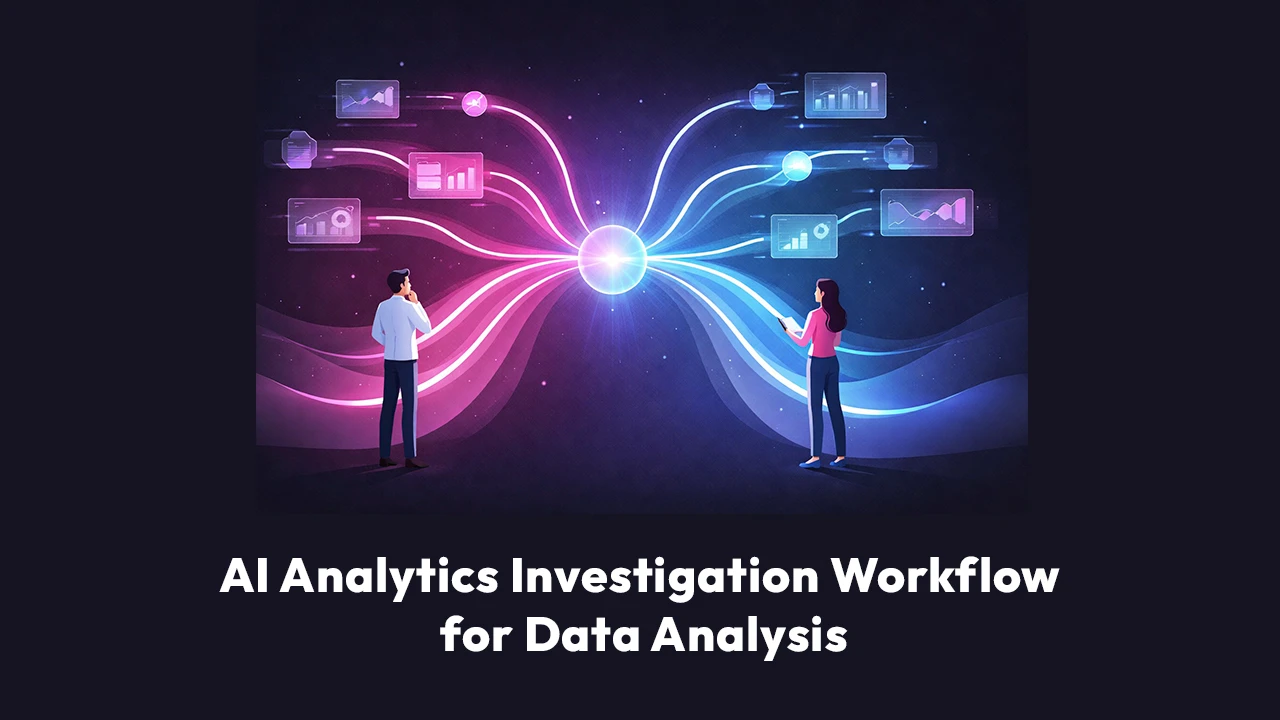Understanding CRM Data Analytics
Before diving into the world of CRM data analytics, let's start with the basics. At its core, CRM data analytics involves extracting and analyzing data from your customer relationship management system. This data can include customer interactions, purchase history, demographic information, and more. By scrutinizing these data points, businesses can gain valuable insights into customer behavior, preferences, and trends.

The importance of CRM data analytics in business cannot be understated. It allows you to understand your customers better, personalize marketing efforts, and make data-driven decisions. By leveraging these insights, you can tailor your products, services, and marketing strategies to maximize customer satisfaction and loyalty.
Delving deeper into CRM data analytics, it's essential to highlight the various types of data that can be collected and analyzed. Beyond the basic customer information, businesses can track customer engagement metrics such as website visits, email open rates, and social media interactions. This granular level of data provides a comprehensive view of customer interactions across multiple touchpoints, enabling businesses to create more targeted and effective marketing campaigns.
Furthermore, CRM data analytics plays a crucial role in forecasting and predictive modeling. By analyzing historical data trends, businesses can anticipate future customer behavior and market trends. This proactive approach allows companies to stay ahead of the competition, identify potential opportunities, and mitigate risks effectively. Ultimately, CRM data analytics empowers businesses to make informed decisions that drive growth and profitability.
Implementing CRM Data Analytics in Your Business
Now that you understand the importance of CRM data analytics, let's discuss how to implement it successfully into your business. The first step is choosing the right CRM data analytics tools. There are plenty of options available, so take the time to research and select a tool that aligns with your business goals and budget.

Equally important is training your team on CRM data analytics. Provide comprehensive training to ensure they have the skills to collect, analyze, and interpret data accurately. A well-trained team will be able to unlock the full potential of CRM data analytics and drive positive outcomes for your business.
Furthermore, once you have selected the appropriate CRM data analytics tool and trained your team, it's crucial to establish key performance indicators (KPIs) to measure the success of your data analytics efforts. These KPIs should be aligned with your business objectives and provide measurable benchmarks to track progress and make informed decisions.
Additionally, consider implementing a data governance framework to ensure the quality, integrity, and security of your CRM data. Data governance involves establishing policies, procedures, and controls to manage data effectively, mitigate risks, and comply with regulations.
Strategies to Maximize CRM Data Analytics
Once you have implemented CRM data analytics in your business, it's crucial to develop strategies that maximize its potential. Start by streamlining data collection and analysis processes. This will ensure that you are gathering accurate and actionable data efficiently.
Next, leverage CRM data for business growth. Use the insights gained to identify opportunities for product innovation, optimize marketing campaigns, and improve customer experience. With CRM data analytics as your guide, you can make informed decisions that propel your business forward.
Furthermore, consider implementing data visualization tools to enhance the interpretation of CRM data. Visual representations such as charts, graphs, and dashboards can provide a clear and concise overview of key metrics, making it easier for stakeholders to grasp complex data patterns and trends at a glance.
Additionally, prioritize data security and compliance measures to safeguard sensitive customer information. Implement encryption protocols, access controls, and regular security audits to protect CRM data from unauthorized access or breaches, ensuring the trust and privacy of your customers are maintained.
Overcoming Challenges in CRM Data Analytics
While the benefits of CRM data analytics are abundant, it's important to address common challenges that may arise. One such challenge is data privacy concerns. Safeguarding customer data should be a top priority. Implement robust security measures and adhere to data protection regulations to build trust and maintain the integrity of your customer relationships.
Another challenge is ensuring data accuracy and consistency. Data from various sources must be clean, standardized, and up-to-date. Regularly audit your data processes and invest in data quality management tools to minimize errors and maintain reliable information.
Moreover, it is crucial to consider the scalability of your CRM data analytics system. As your business grows and customer data expands, your analytics platform should be able to handle increased volumes of data efficiently. Implementing scalable infrastructure and utilizing cloud-based solutions can help ensure that your CRM analytics system remains effective and responsive to your business needs.
Additionally, another challenge to overcome is the integration of disparate data sources. To gain a comprehensive view of your customers, you may need to combine data from various sources such as sales, marketing, and customer service. Utilize data integration tools and establish data governance practices to ensure seamless data flow and consistency across all touchpoints.
Measuring the Impact of CRM Data Analytics
Finally, measuring the impact of your CRM data analytics efforts is crucial to gauge its effectiveness. Key Performance Indicators (KPIs) provide valuable insights into the success of your strategies. Identify relevant KPIs such as customer acquisition, retention rates, sales conversion, and customer satisfaction. Regularly track these metrics to monitor progress and make data-driven adjustments.
Remember that CRM data analytics is an ongoing process of continual improvement. Analyze the results, learn from them, and refine your strategies based on the insights gained. By continually optimizing your CRM data analytics efforts, you can stay ahead of the competition and maximize your business potential.
In conclusion, CRM data analytics opens up a world of possibilities for businesses of all sizes. By understanding the basics, implementing the right tools, developing effective strategies, and addressing challenges, you can unlock valuable insights and drive growth like never before. So, embrace the power of CRM data analytics and start maximizing your business potential today!
Take Your CRM Data Analytics to the Next Level with Scoop
Ready to elevate your CRM data analytics and maximize your business potential? Discover the power of Scoop, the data management platform that integrates effortlessly with your existing CRM systems. Automate data extraction, enjoy seamless workflow integration, and create dynamic, live-updating reports with Scoop's innovative canvas feature. Don't miss out on the opportunity to transform your data into actionable insights with ease. Try Scoop Free today and start making more informed, data-driven decisions that propel your business forward.








.webp)